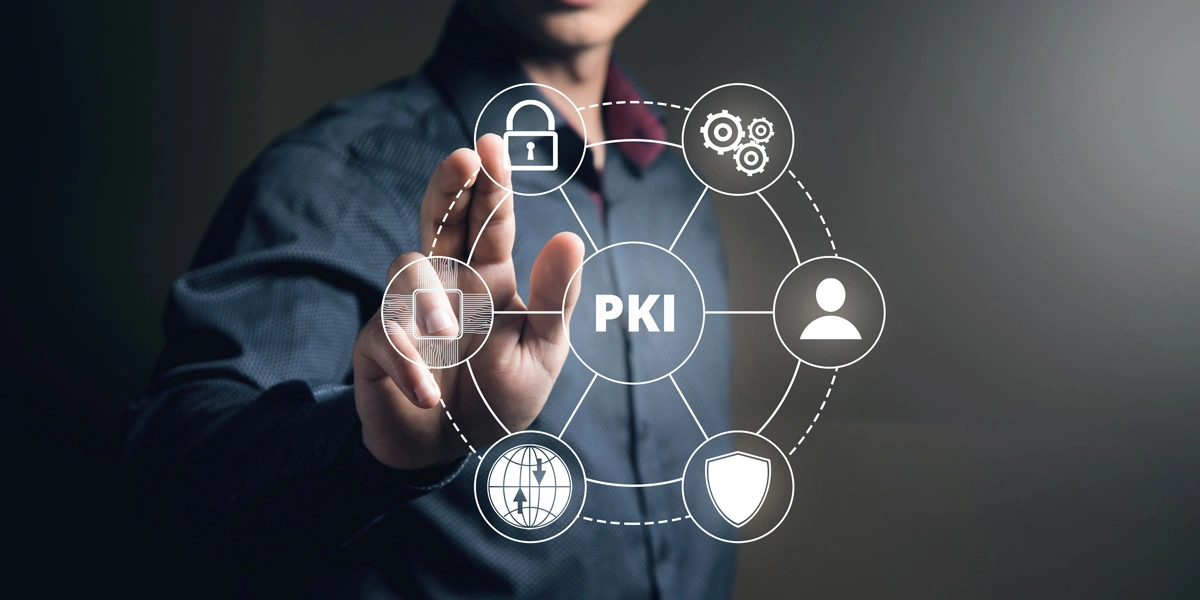
In this rapidly advancing technological era, where reliance on digital platforms is escalating, the importance of secure data communication is paramount. Public Key Infrastructure (PKI) serves as the bedrock of this security, facilitating secure connections, data integrity, and digital authentication. However, the evolution of technology has exposed the weaknesses and vulnerabilities of legacy PKI systems. This article explores the essential process of transitioning from legacy PKI to modern PKI, highlighting the reasons, benefits, and how we at eMudhra ensure a smooth migration.
Legacy PKI, once an innovative solution, now grapples with issues stemming from obsolete algorithms, limited scalability, and an inability to satisfy modern cryptographic protocols. The urgent need for enhanced security, flexibility, and adaptability has led to the rise of modern PKI as a compelling alternative.
The shift from legacy PKI to modern PKI is more than a mere technological upgrade; it represents a strategic transformation in digital security. As the digital world continues to change, this transformation becomes not only a wise decision but a necessary one.
Evolution of Public Key Infrastructure (PKI)
PKI's evolution can be traced through three distinct phases:
Internet PKI: During the internet's growth, organizations needed trustworthy certificates for their external websites and applications. These certificates were costly, sourced from a restricted pool of Public Certificate Authorities (CAs).
Enterprise PKI: The growth of enterprise networks led to a need to secure user devices and network appliances, and to enable Wi-Fi and VPN access through internal PKI, reducing costs associated with public CAs.
Next-Gen PKI: The widespread adoption of cloud services, IoT technologies, and mobile devices has dramatically altered the technological environment. PKI, known for its scalability and effectiveness, has become the standard for protecting digital identities.
Why Traditional PKI Can't Meet Modern Demand?
Legacy PKI, comprising a mix of tools from Certification Authorities (CAs), custom scripts, spreadsheets, and in-house solutions, is no longer sufficient. The increase in certificate quantities has exposed its limitations.
Legacy PKI forces organizations into a reactive mode, with disjointed departments adopting CAs without overarching control. Security teams struggle to identify expired or non-compliant certificates, risking disruptions.
Challenges arise from traditional PKI's inability to align with modern demands. These challenges include adapting to new use cases, managing the proliferation of CAs, dealing with tedious manual procedures, and finding specialized expertise.
eMudhra’s Solution: A Flexible and Robust PKI Platform
eMudhra's PKI solution for enterprises offers a way to overcome these challenges. Unlike legacy PKI, which is suited for static data centers and limited certificates, eMudhra's emCA is a forward-thinking solution designed for dynamic, cloud-centric environments.
Our modern PKI solution addresses current challenges by providing a comprehensive PKI framework within a single platform. It supports various certificate types, algorithms, protocols, and Hardware Security Modules (HSMs), allowing organizations to use certificates across different contexts.
emCA's adaptability is evident in its support for multiple cloud environments, high scalability, versatile deployment options, and automated certificate lifecycle management. It ensures reliability and compliance, with validation from Common Criteria and compliance with WebTrust and ETSI/eIDAS standards.
With eMudhra's solution, enterprises can focus on utilizing certificates without getting bogged down in administrative complexities.
Contact us to establish your enterprise PKI!
